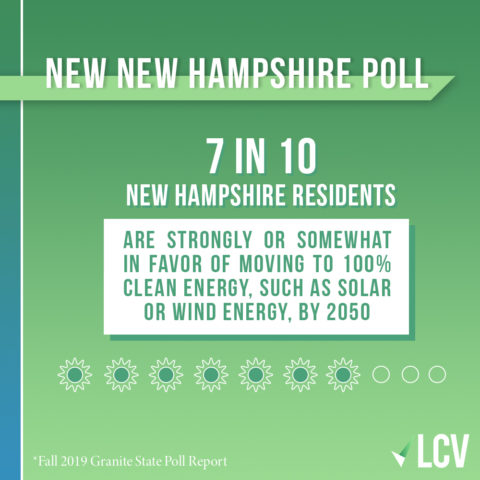New Hampshire is already seeing the effects of climate change. Winters have become less predictable, coastal floods come more frequently, and summer heat waves run higher than ever. Insects like mosquitoes have longer breeding seasons, and the range of ticks bearing lyme disease continues to move northward, bringing more infections to New Hampshire.
From farmers and beekeepers to the winter recreation and tourism community, climate change is affecting human health, our environment, and our economy. Check out the stories of New Hampshire residents already affected by climate changes.
The 2020 presidential election represents the last, best chance for the U.S. to confront the climate crisis.
Confronting climate change can protect the way of life we enjoy in New Hampshire, and support economic growth. In 2018, there were 11,733 New Hampshire jobs in energy efficiency, another 890 in the solar industry. New Hampshire windmills produced enough electricity to power over 41,000 homes.

71% of New Hampshire residents favored moving to 100% clean energy by 2050, according to a public opinion poll conducted in October 2019 by LCV and the University of New Hampshire. Among Democrats and Independents, 41% think the Democratic candidates aren’t talking enough about climate change.

Change the Climate 2020, a project of the League of Conservation Voters, aims to make sure the presidential primary candidates make climate change a top priority.
